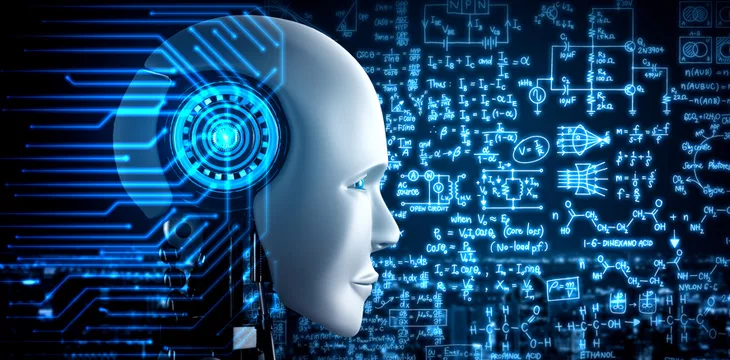|
Getting your Trinity Audio player ready...
|
Representatives on the Foreign Affairs Committee Michael McCaul (R-TX), John Moolenaar (R-MI), Raja Krishnamoorthi (D-IL), and Susan Wild (D-PA) announced a bipartisan bill on May 10, which aims to empower the Commerce Department to control the transfer of advanced artificial intelligence (AI) systems.
“Artificial intelligence is a foundational technology of the future with the potential to reshape our economy, our way of life, and our national security,” said Chairman Moolenaar. “This legislation will protect the American people and help prevent our nation’s innovations from falling into the hands of our adversaries.”
The proposed “Enhancing National Frameworks for Overseas Critical Exports Act” would give the Commerce Department’s Bureau of Industry and Security (BIS) the authority to use export controls on AI and other national security-related emerging technology.
Under current rules, the BIS can stop the export of advanced semiconductors used to create the most powerful AI systems and the tools used to develop those semiconductors. However, the BIS doesn’t have the clear legal authority to control the transfer of the AI systems themselves.
Meaning, as things stand, nothing is stopping U.S. AI giants like Microsoft-backed (NASDAQ: MSFT) OpenAI, Alphabet’s Google DeepMind (NASDAQ: GOOGL), and Anthropic, which have developed some of the most powerful AI models, from selling to a rival country, such as China, without having to apply for a license.
“The U.S. government has the tools it needs to keep critical hardware with national security ramifications out of the hands of our adversaries’ militaries,” said Chairman McCaul.
“But we don’t have those same clear tools to keep the software that powers advanced technologies – the AI systems themselves – from them. I’m proud to introduce this bipartisan legislation that will close those loopholes.”
The regulatory move followed hot on the heels of a May 8 report that suggested the U.S. is ready to take action to safeguard its homegrown AI from China and Russia by implementing export controls on its most advanced proprietary AI models.
The Reuters report stated that the Commerce Department is considering a regulatory push to restrict the export of proprietary or closed source AI models, according to “three people familiar with the matter.”
As opposed to open-source AI models, “proprietary” or “closed source” AI models are developed and owned by a single entity, typically a company, which restricts access to the model’s code and underlying architecture—so users cannot view or modify the source code. Meta’s LLaMa 2 is the most prominent open-source example, while OpenAI’s GPT-4 and Google’s Bard are leading proprietary AI models.
The U.S.’s fear of such advanced AI systems getting into the hands of rivals are not unfounded. In November 2023, 01.AI—a fast growing AI startup founded by former Google executive Kai-Fu Lee—revealed that its AI model Yi-34B was built using Meta’s LLaMa system.
The press release for the Foreign Affairs Committee’s proposed bill also noted concerns raised by the United States–China Economic and Security Review Commission that “China is using commercial AI advancements to develop its military capabilities so it can prepare for a potential war over Taiwan.”
“Without action, there is a grave possibility that a future cyber-attack on the American homeland could be enabled by AI technologies,” said Committee Ranking Member Krishnamoorthi.
“The ENFORCE Act would address this threat by ensuring that the Bureau of Industry and Security has the authority necessary to address the security risks posed by AI and technology transfers, ensuring that American technologies, American researchers and firms do not feed the Chinese Communist Party’s military and surveillance state.”
In order for artificial intelligence (AI) to work right within the law and thrive in the face of growing challenges, it needs to integrate an enterprise blockchain system that ensures data input quality and ownership—allowing it to keep data safe while also guaranteeing the immutability of data. Check out CoinGeek’s coverage on this emerging tech to learn more why Enterprise blockchain will be the backbone of AI.
Watch: Blockchain & AI unlock possibilities

 03-02-2026
03-02-2026 




